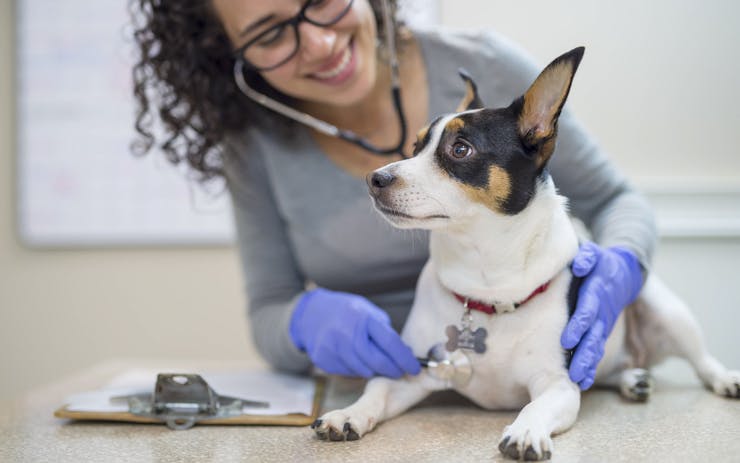A leading veterinary organization is joining the fight to reschedule cannabis in an effort to speed research into the plant’s effects on our furry friends.
The American Veterinary Medical Association (AMVA) approved a resolution at its conference last month to begin exploring how to advocate that cannabis be rescheduled federally, moving it from Schedule I to Schedule II. The move would increase opportunities to research cannabis for therapeutic use among both animals and humans.

Founded in 1863, the nonprofit AVMA boasts more than 89,000 members. As noted by reporter Tom Angell, who spotted the news this week, the organization “is being encouraged by its members to develop and distribute literature on marijuana’s legal status, research on its medical uses and ‘the signs, symptoms, and treatment of cannabis toxicosis in animals.'”
In a release posted on the organization’s website, Dr. Michael Ames, an Arizona veterinarian, pointed out that even though cannabis is legal for medical use among humans in 29 states, it’s still illegal at the federal level, which means vets aren’t legally able to prescribe medical marijuana to animals.
Currently, the Colorado State University’s College of Veterinary Medicine and Biomedical Science is conducting two clinical trials examining the effects of cannabis in dogs. One study is exploring CBD’s effects on canine epilepsy, while the other is looking at CBD as a possible osteoarthritis treatment.
CSU is still recruiting animals for the study.
Other vets are calling for more research in order to better understand possible health risks to animals, which can be affected by cannabis more severely than humans. Dr. Dick Sullivan of California said at the Veterinary Information Forum on July 20. “We are definitely seeing an increase in toxicity cases. For that reason alone, we need research and our national association to write a letter or petition the FDA to allow us to do research and get good information to our clients because they are asking us, and our obligation, morally and ethically, is to address these cases.”





